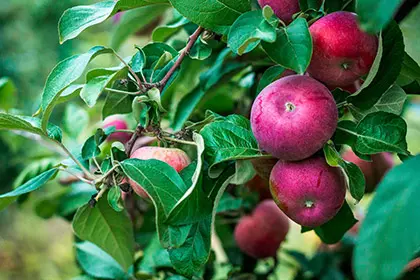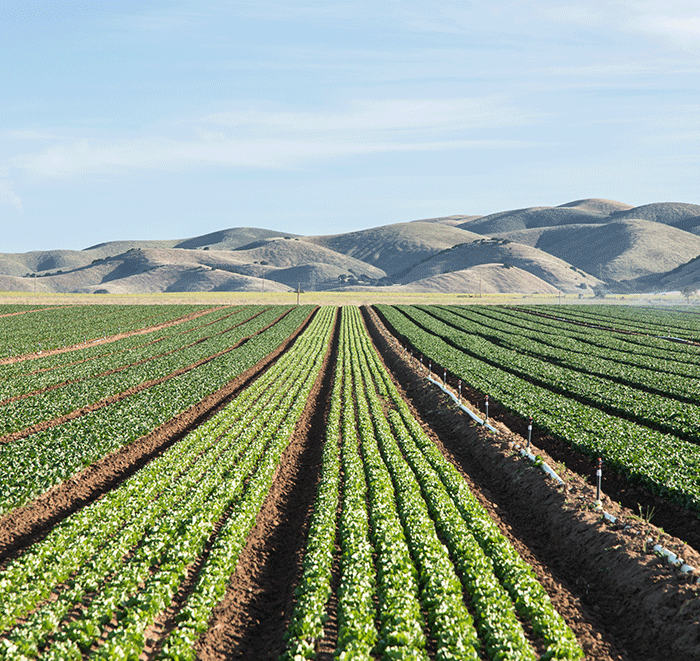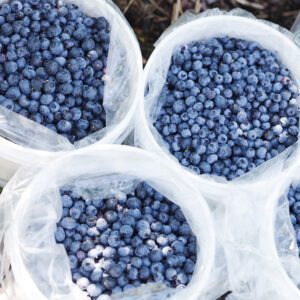
Stress Less with Food Safety Audit Assistance from Wilbur-Ellis
Annually conducting a food safety audit can be a daunting task, but with Wilbur-Ellis’ food safety audit service and expertise, you can rest assured that your farm or orchard will achieve the requirements needed for certification.
“Growers are already dealing with finding labor, trying to grow a good quality crop, and many of the other regulations and tasks that go into managing a farm. Having to do all the paperwork for food safety certifications on top of everything else can get overwhelming,” said Carrie Fitzpatrick, Wilbur-Ellis sales support specialist near Sparta, Michigan.
Fitzpatrick began helping growers prepare for food safety audits in 2021 when food safety practices came under increased scrutiny after many recalls of fresh produce.
“My first year, I worked with two growers. In 2022, I helped 20 growers after packing houses connected me to growers and word-of-mouth spread about the new service that Wilbur-Ellis is offering. This year I’m hoping to support even more growers,” said Fitzpatrick.
With you from planning through harvest
Wilbur-Ellis experts like Fitzpatrick can help every step of the way whether verifying that basic food safety principles are met, checking traceability program details or walking through an entire operation with an eye toward details such as worker protection standards, food safety risks and pesticide records. Fitzpatrick is knowledgeable and experienced with both the primusGFS and USDA Good Agricultural Practices certifications as well as the FDA Food Safety Modernization Act rules.
Wilbur-Ellis Food Safety Specialists, like Fitzpatrick, also meet with each grower to go over a spring checklist to accomplish food safety and put a plan into place for the upcoming season. Once the growing season gets going, Fitzpatrick ensures spring records are correctly filled out and begins to draft a plan for the upcoming harvest.
On the day of the audit, she takes ownership of documentation assembled all season and answers questions the auditor has, taking stress off the grower. Fitzpatrick has developed a relationship with the auditors in her region which also helps the audit go smoothly for growers.
“By the time I meet with an auditor for the tenth time in a season, they know how I answer questions and what my book looks like. This rapport makes what could be a stressful day for growers much easier,” said Fitzpatrick.
Trained and up to speed on the latest regulations
Fitzpatrick regularly attends various training courses to stay up to date with changes to food safety requirements.
“I feel that to do my job well, taking training and always learning is the only way to do it. Typically, I’m attending training workshops yearly to learn more, so I can help growers be successful and avoid any issues,” said Fitzpatrick.
Getting started with food safety
If you’re just getting started with food safety practices and compliance, Fitzpatrick advises to “reach out to another grower who has completed an audit or reach out to an experienced resource that can help.”
A good record-keeping system is essential, and it should be one that works for your operation. It can be digital or on paper, as long as growers and employees can use it and remember to document farm activity.
“Even if you are doing everything according to the rules, if you don’t document that tractor oil change or cleaning picking buckets, you are at risk of losing points and ultimately not getting the certification,” shared Fitzpatrick.
What’s New in 2023?
Growers can always reach out to the Wilbur-Ellis food safety specialist in their region with questions and concerns, but there are a few new things to know for 2023. The biggest change that will affect growers this season is updated FMSA rules about harvest and post-harvest agricultural water.
“That rule change will affect handwashing water, water used to sanitize harvest equipment, and dunk tank water for operations that have a packing facility. You can comply by making sure that you’re having your water tested routinely and that you’re getting your water tests from your portable toilet company showing that you have negative E. coli and coliform results,” explained Fitzpatrick.
Preparing for and completing food safety audits with help from Wilbur-Ellis will give you peace of mind, knowing the hard work you put in every day to ensure a safe food supply is recognized and as stress-free as possible. Reach out to your local Wilbur-Ellis location today for details on food safety audit support in your region.



